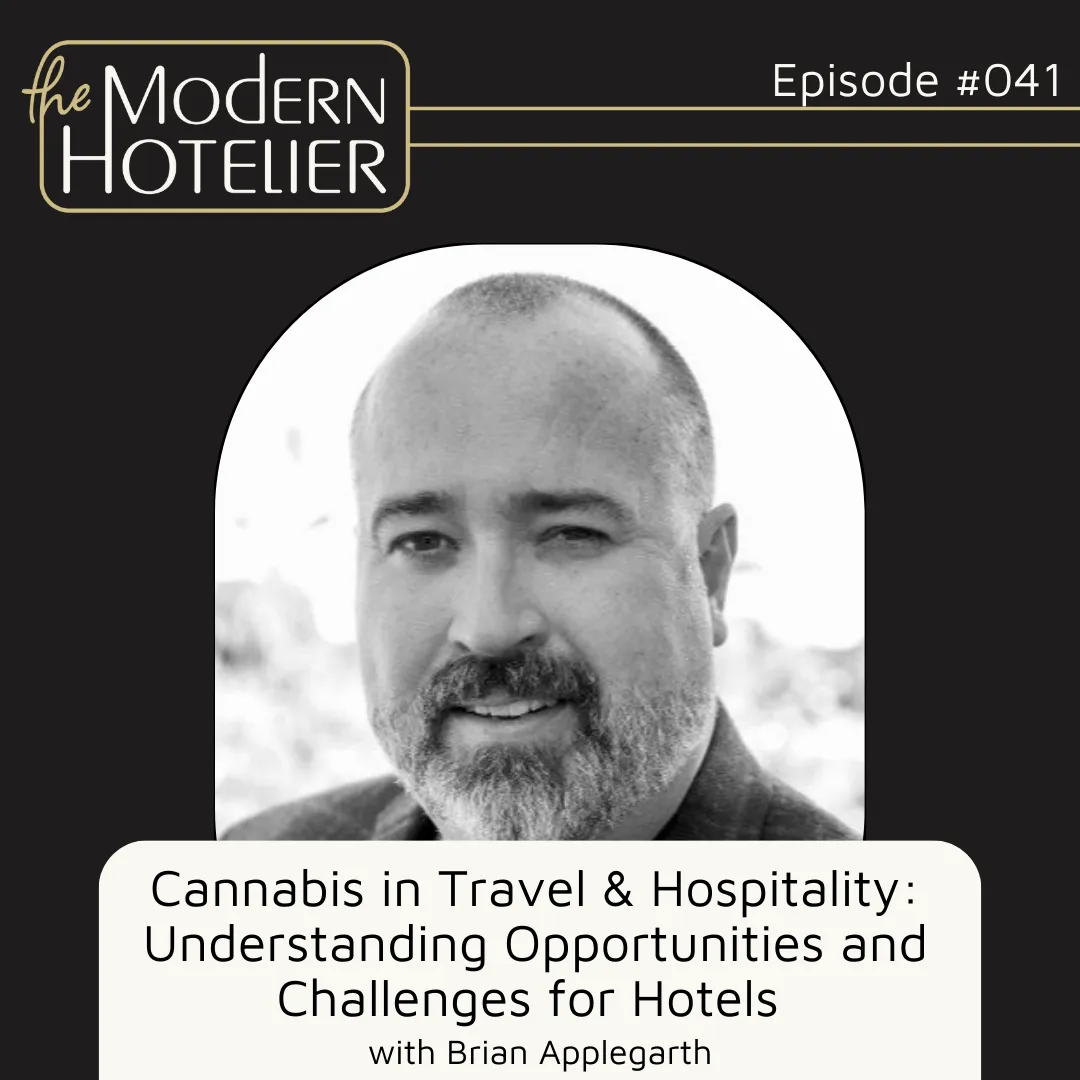Welcome back to another episode of The Modern Hotelier! Today, we're diving into the fascinating world of cannabis-focued travel and the evolving cannabis travel trend. Our guest, Brian Applegarth, is here to shed light on this growing industry and share his expertise on creating enriching experiences for cannabis enthusiasts. From cannabis consumption lounges to effect pairing methods, Brian covers it all. We'll explore the history and potential benefits of cannabis, the importance of mindful consumption, and how hotels can adapt to the rising popularity of cannabis. Get ready for an episode filled with education, inspiration, and a look into the future of cannabis in hospitality. Let's dive in!
In this episode, you'll discover:
- The growing and evolving cannabis travel audience
- The risks of not being proactive in implementing cannabis strategies.
- How cannabis effect-pairing (like wine pairing) is enhancing travel & hospitality experiences
- How hotels can utilize hemp products, such as CBD and CBN
- How to get started implementing a cannabis strategy on your property
- How some hotels are adapting to the budding cannabis landscape
The Modern Hotelier is produced, edited, and published by Make More Media: https://makemore.media/
Episode Links
Brian Applegarth
David Millili
Steve Carran
Steve on LinkedIn
The Modern Hotelier
Transcript
Automatic Transcription - please excuse any errors

